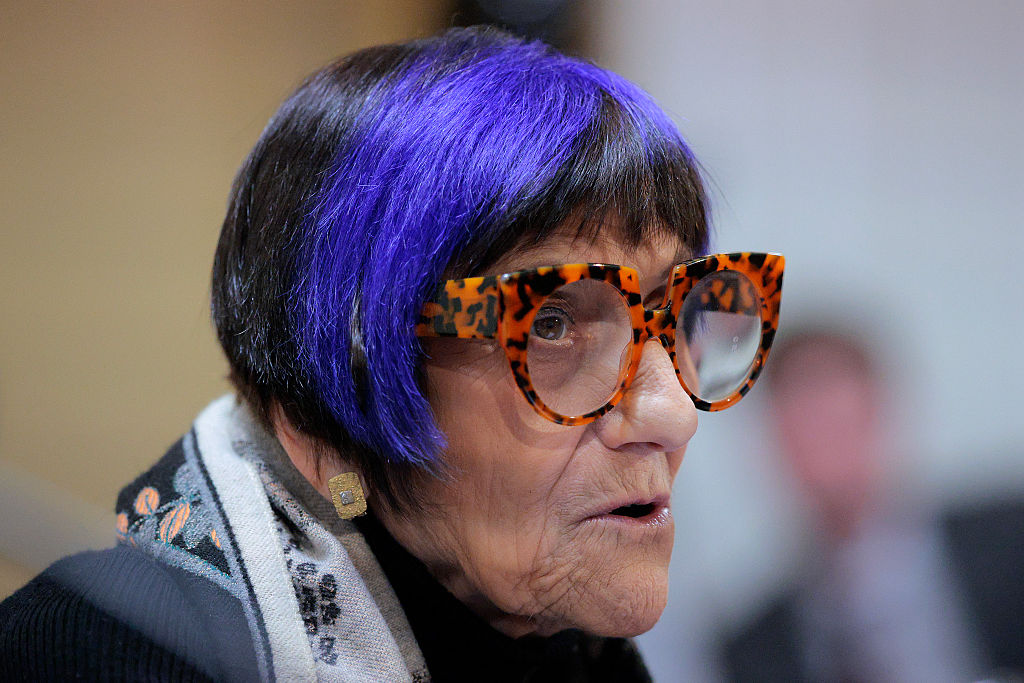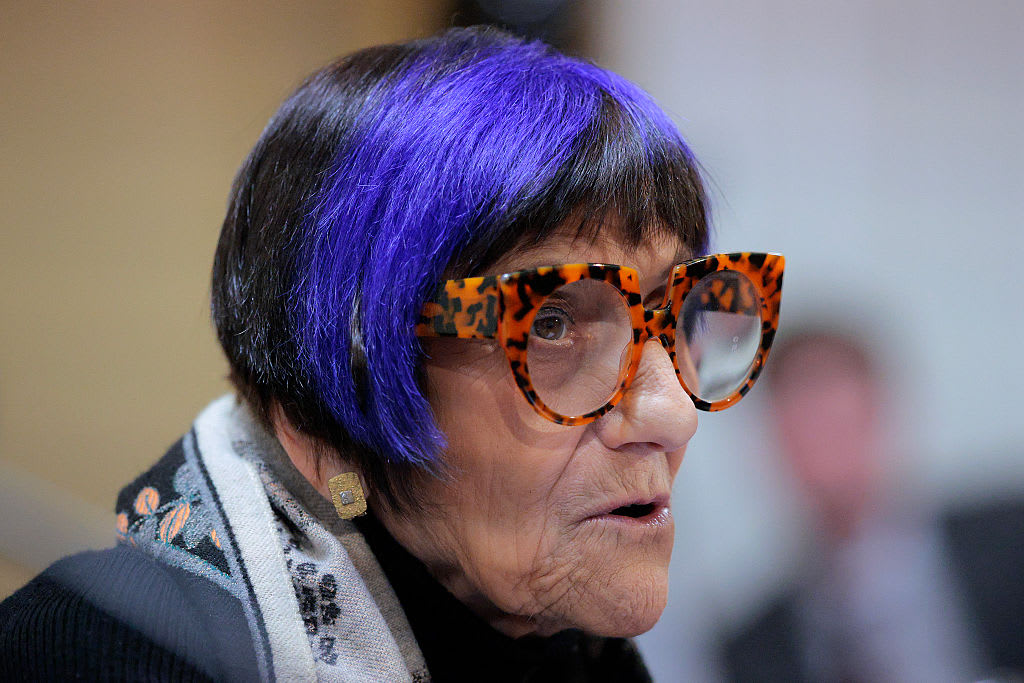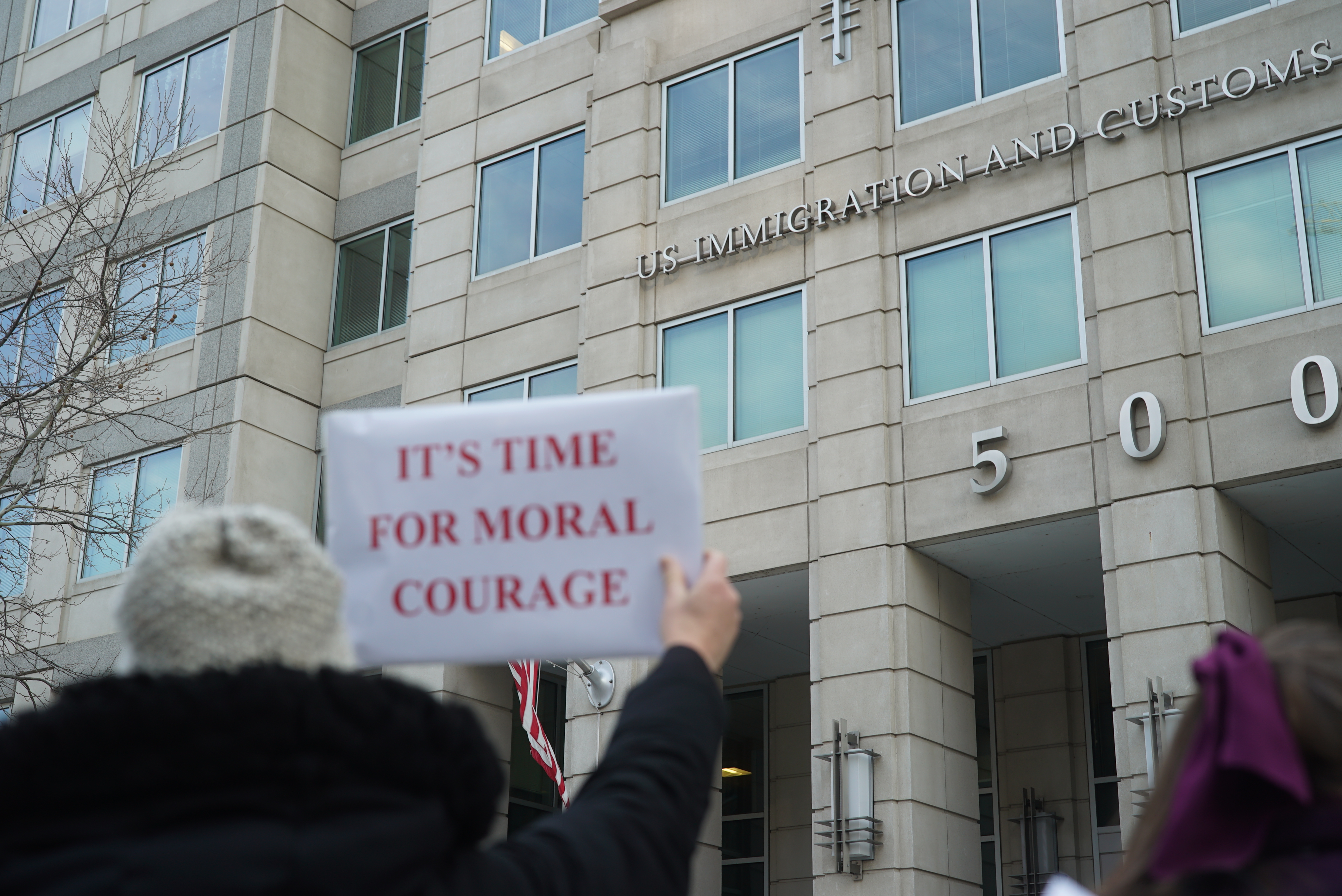
Catholic U.S. House Democrats cited Church teaching in defense of the dignity of migrants as Trump administration officials defend immigration enforcement.


Catholic U.S. House Democrats cited Church teaching in defense of the dignity of migrants as Trump administration officials defend immigration enforcement.

![U.S. clergy celebrate Masses in detention centers, urging humane treatment #Catholic U.S. Catholic clergy are bringing the sacraments to the nation’s immigrant detention centers, celebrating Masses and urging humane treatment for those held inside. As part of this effort, pastoral visits are aimed at ensuring detainees can access the Eucharist and receive spiritual support.In California, Bishop Joseph Brennan of the Diocese of Fresno is set to celebrate Mass on Feb. 15 at the California City Detention Facility, the state’s largest ICE center. While the diocese regularly provides sacraments in prisons and detention sites, this will be Brennan’s first Mass inside an ICE facility.In Oregon, Archbishop Alexander Sample of Portland issued a Feb. 12 statement stressing the Church’s duty to safeguard detainees’ access to the sacraments and voicing concern about large‑scale deportations. “I just feel very strongly about this, that there has to be a better solution to solving the immigration problems we have in the United States,” he said.In December 2025, seven bishops celebrated Mass at the Adelanto ICE Processing Center in California.Chandler Marquez, director of public affairs and innovation at the Fresno Diocese, told EWTN News that there are “people who are in the facility [who] want the sacrament — they want the spiritual accompaniment,” which they are not able to access as frequently while in detention.Los Angeles Auxiliary Bishop Brian Nunes and Father Kris Sorenson, pastor of Our Lady of Lourdes in California City, will join for the Mass.With President Donald Trump’s mass deportation efforts still ongoing, Marquez said “the current climate has certainly motivated” Brennan’s decision to celebrate Mass at the facility. He said the bishop has been “vocal about the promotion of human dignity” for migrants.In January 2025, Brennan issued an open letter on “immigration challenges,” in which he said “it seemed as if we took a step back as a society, and the old days of immigration sweeps were upon us once again” when he saw the uptick of immigration enforcement within his diocese.“Our people are being asked to produce proof of citizenship, and it seems as if the request is based on how they look and how they speak,” he said at the time. “That is not, by way of example, going after hardened criminals or drug dealers which, I hope, none of us would take exception to. It is going after people who, rightly or wrongly, were allowed to cross a border and who are now being subjected to tactics that are causing much fear and anxiety among my people. It is an insult to human dignity, and it is simply wrong.”
Bishop Joseph V. Brennan of Fresno, California. | Credit: Screenshot of Diocese of Fresno YouTube video
Marquez noted the diocese has the largest detention facility and the “largest amount of prisons and detention centers” in the state, which is why the ministry at prisons and detention centers is “a very, very big part of our diocese.”“Our chaplains have a great relationship with the prisons and detention centers within our dioceses,” he said, adding that the diocese has not run into problems gaining access to the facilities to provide religious services.The Department of Homeland Security (DHS), which operates ICE, said it encourages clergy to request accommodations for religious services at long-term ICE detention centers.Catholic clergy ran into obstacles several times last year when trying to administer sacraments at an ICE field office in Broadview, Illinois, where detainees are processed. A federal judge said Feb. 12 that DHS must provide accommodations to ensure Catholic clergy could provide ashes and Communion for detainees on Ash Wednesday, Feb. 18.](https://unitedyam.com/wp-content/uploads/2026/02/u-s-clergy-celebrate-masses-in-detention-centers-urging-humane-treatment-catholic-u-s-catholic-clergy-are-bringing-the-sacraments-to-the-nations-immigrant-detention-centers-celebrating-m.jpg)
Archbishop Alexander Sample issued a statement stressing the Church’s duty to safeguard detainees’ access to the sacraments.



The Moon’s light is refracted by Earth’s atmosphere, giving it a spheroid shape in this April 13, 2025, photograph from the International Space Station as it orbited into a sunset 264 miles above the border between Bolivia and Brazil in South America.
Read More